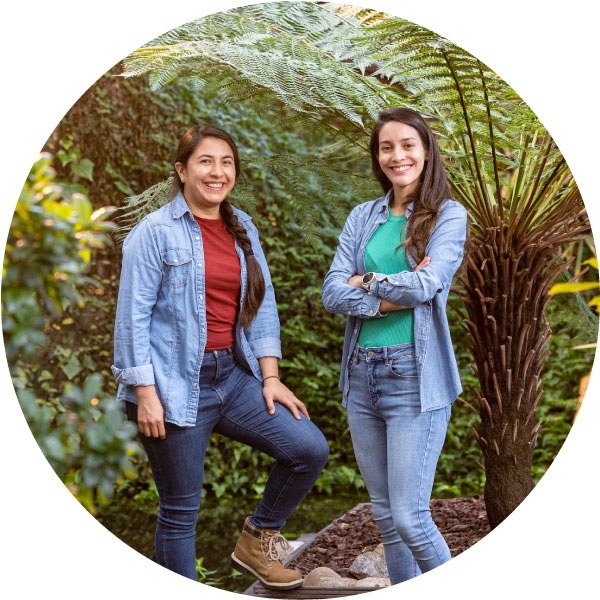2021
JUICE Innovation Contest
Gabriela Figueroa Miranda emerges as the triumphant 1st place winner and secures the initial seed capital at the JUICE Innovation Contest.
Innovation Preview
While a mosquito bite might seem trivial in certain parts of the world, in many regions, it can prove fatal. Malaria, often transmitted by mosquitoes, remains a significant threat, particularly in Africa, Asia, and South America. Although this infectious disease can be treated effectively if detected early, the recognition process often falters, resulting in over half a million annual deaths, with two-thirds of the victims being children under five years old, according to the Robert Koch Institute.
A potential solution lies in a remarkable creation from FZ Jülich – a small but powerful device with the potential to revolutionize malaria diagnosis. Gabriela Figueroa Miranda and Viviana Rincón Montes are the masterminds behind this groundbreaking biosensor capable of detecting malaria with just a single drop of blood, much like a simple blood sugar test with a finger prick.
Beyond indicating whether someone is infected, the sensor also provides crucial information on the pathogen's concentration in the blood and identifies the specific strain of the two most common pathogens. "The test accomplishes all this in the early stages of the disease," explains Figueroa Miranda. "Armed with this knowledge, doctors can initiate faster and more targeted treatments." This is a significant improvement over the existing rapid tests, which often lack precision, and the time-consuming PCR detection method, which is not always reliable.
Dr. Gabriela Figueroa Miaranda and
Dr. Viviana Rincón Montes
Acclaimed duo: These two remarkable women were honored with the state of North Rhine-Westphalia's prestigious innovation prize for their groundbreaking malaria sensor. Before that, they had already secured victory in the Innovation Contest of the JUICE Program at FZ Jülich with their exceptional idea.

The biomedical engineer came up with the concept for the biosensor while pursuing her doctoral scholarship at Forschungszentrum Jülich. It dawned on her that the people living in malaria-prone areas could immensely benefit from the outcomes. This realization fueled her determination to establish her own company. Following the completion of her doctorate, she received financial backing from the Jülich Innovation Fund to propel the project forward.
In pursuit of her goal, she participated in the JUICE program at FZ Jülich, where young researchers gain valuable entrepreneurial knowledge. She understood that a successful venture requires more than just a brilliant idea; understanding the target audience is crucial. Therefore, Figueroa Miranda consulted NGOs and clinics in the affected countries to discover what features a test kit should have to be genuinely appealing to users. The feedback was clear: the kit must be robust, user-friendly, and affordable.

Considering these criteria, the laboratory model will be transformed into a practical device for hands-on application, capable of reading data from a sensor measuring just a few centimeters. Meanwhile, Figueroa Miranda has secured the assistance of Colombian electrical engineer Viviana Rincón Montes, and together they have filed a patent for their groundbreaking biosensor. Presently, they are gearing up to launch a start-up with the noble aim of saving lives in the times ahead.
Image: Forschungszentrum Jülich/ Sascha Kreklau
Illustration: SeitenPlan
Editorial: SeitenPlan

Malaria is a disease triggered by blood parasites belonging to the genus Plasmodium, and their primary habitat is within anopheles mosquitoes.
When a person is bitten by an infected mosquito, these parasites can be transmitted to them. Among the 70 Anopheles species known to carry the disease, some are even found in Central Europe.
Nevertheless, it is essential to note that the likelihood of infection in this region is currently considered to be very low.
Embark on a journey to witness the pioneering efforts of visionary scientists from Forschungszentrum Jülich, as they actively contribute to shaping societal transformation through groundbreaking innovation and knowledge transfer.